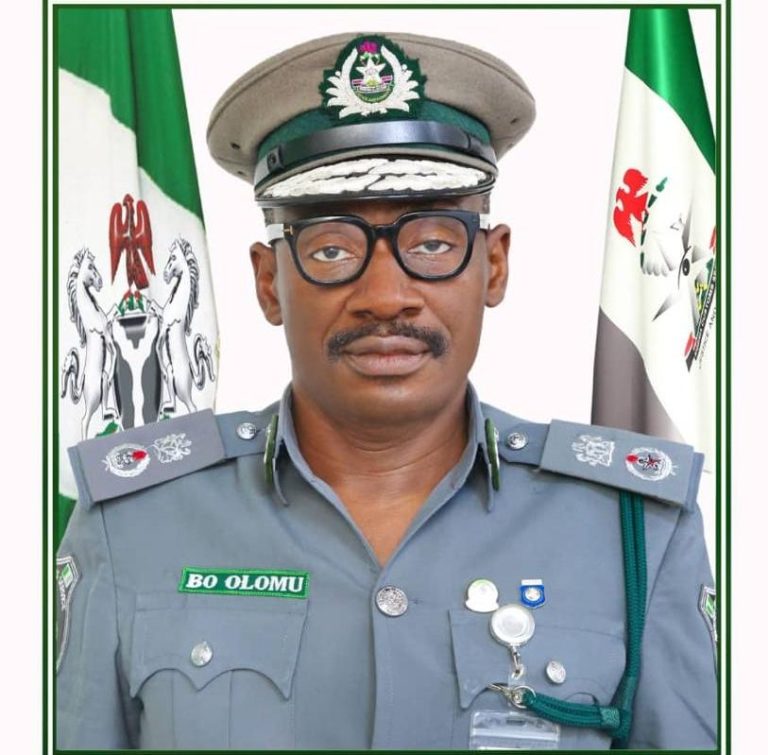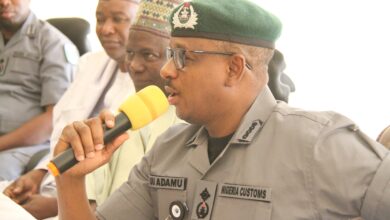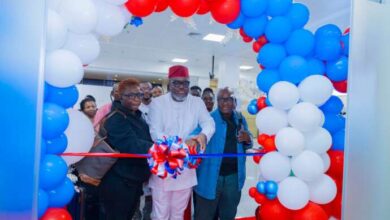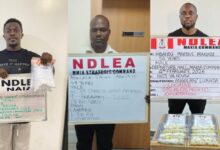Apapa Customs Eyes N2.3trn With Uncompromising Cargo Examination, Prioritises Non Intrusive Inspection

Comptroller Babatunde Olomu, the Customs Area Controller of Apapa Area Command, has affirmed that the Command is capable of achieving its N2.3 trillion revenue target for 2024 while prioritising modern customs practices like non intrusive inspection and physical examination when necessary
The CAC asserted that the projected revenue is attainable because of the command’s commitment to trade facilitation and strategic interventions to curb revenue leakages.
Under Comptroller Olomu’s leadership, the command has applied certain tactics to enhance revenue collection and efficiency, building upon the successes of his predecessor. These efforts have strenghtened the command’s position as a flagship unit of the Nigeria Customs Service.
To achieve the target, the command has set proactive monthly, weekly, and daily revenue targets of N193 billion, N44 billion, and N8.9 billion, respectively. In the first quarter of 2024, the command surpassed its target with a collection of N489 billion. In April, it generated N182 billion, and in May, N175 billion was collected.
Although there was a slight drop in revenue collection in May, Comptroller Olomu is confident that the command will be able to generate N200 billion in June, as a result of the interventions in place. He assured that all necessary measures, including strict supervision from the headquarters, are being taken to successfully achieve the target.
The command has been actively working to seal revenue loopholes and implement interventions that have resulted in increased revenue generation. One of the potent tools deployed is the scanning machine, which is used to facilitate trade for compliant traders and detect duty evasion attempts through scanning and physical examinations.
Comptroller Olomu acknowledged that globally, most people are reluctant to pay taxes unless compelled to do so. Therefore, it is the command’s responsibility to ensure that appropriate taxes are paid to the government. They continue to implement interventions to seal loopholes and prevent revenue leakages.
The Controller acknowledged that their diligence in checking declarations and consignments using non-intrusive technology (scanning) and physical examinations has made non-compliant traders uncomfortable. Some of them resort to blackmail and other tactics to compromise and dampen the morale of officers. However, the officers are loyal in carrying out their duties.
As the command raises queries on suspicious consignments, compliant traders have no reason to fear, as the command prioritizes not just revenue generation but also trade facilitation.
To hasten cargo delivery, decongest port terminals, and reduce gridlock on the port access road, the command has intensified engagements with barge operators and terminal operators in partnership with other area commands in the corridor. This collaboration aims to convey cargoes on the water, which is faster than transporting them on the roads.
The command clarified that containers are randomly selected for scanning, making it impossible for officers to influence the process. Non-intrusive inspection (scanning) is a globally recognized technology aimed at preventing duty evasion, a common practice among some Nigerian traders.
Shedding more light on the essence of scanning and importance of physical examination,Comptroller Olomu said “One thing to note about the issue of delay is part of our SOP.There are limitations the scanners have.There are things the scanners can do and cannot do. We have made this known to the general public.Even the stakeholders are aware.Firstly, the scanners cannot classify items.It can only reveal what those items are and what we deal with is imagery.We don’t deal with pictorial image to describe or interpret those consignments.
“There are certain items , particularly items like chemical that can fall under their regulations that will require EUC.They could have some kind of radioactive materials in them that would require repositioning to see the material physically instead of just seeing them image wise.Such consignments are the consignments I think the agents are complaining about and we need to check.
Sometimes, we have heterogenous items .When you have heterogeneous items mixed up with other items that can be classified differently from what the original items are, we will subject them to into physical check even if the description suits the analyst.
“There are instances when doing the documentation, when studying the document very well, there are things that might not likely fit in with where we are trying to place the heading to be able to maximize the collection of revenue.In such circumstances, those containers would be subjected to physical check but not in all cases.It is just on random and few occasions on those ones we feel that have not given us a correct description.Such containers are alerted either by valuation or query requiring a detailed information about that container.
There is need for us to subject them to physical check so that verifications and correct information will be imputed for necessary value appraisal.That is just all we do here .
“Scanning has a SOP .You book, scan, the analyst analyses.The analysts are not robots .They are humans and they are bound to make certain mistakes.They can demand for physical check .It is still within the process of scanning until finally validated and released.That is where the processes ends.As far as you lodge your consignments, until it goes out of customs processes,the container can be determined clear enough .Just passing the preliminary stage of scanning and analysing does not give the cargo a hundred percent for release or deem it perfect for release.It is an operational issue that is subject to review as time goes on” he said











